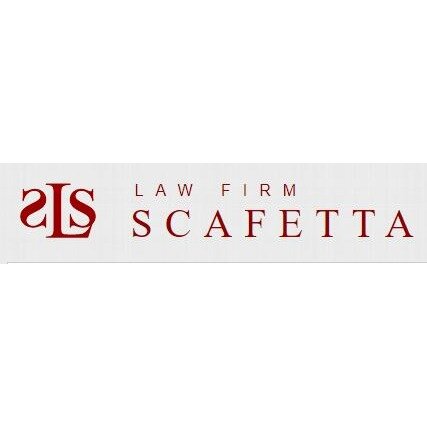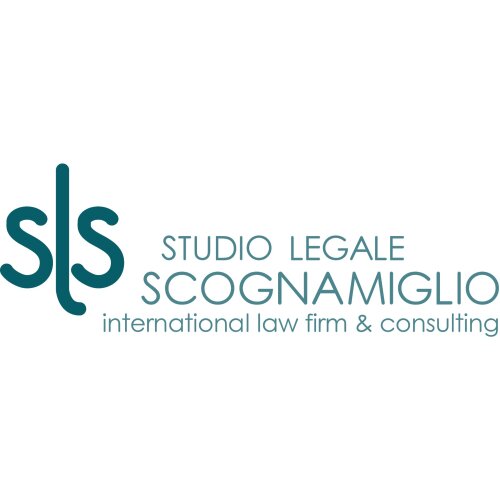Best Water Law Lawyers in Naples
Share your needs with us, get contacted by law firms.
Free. Takes 2 min.
List of the best lawyers in Naples, Italy
About Water Law in Naples, Italy
Water Law in Naples, Italy, refers to the set of legal rules and regulations governing the use, management, and protection of water resources, including public and private waters, surface and groundwater, and related environmental aspects. Water Law in Naples is influenced by Italian national law, European Union directives, and regional/local ordinances. It deals with the allocation of water rights, water pollution control, wastewater management, drinking water standards, irrigation, and disputes that may arise over water access or use. Given Naples' historical reliance on both natural and engineered water sources, Water Law plays a pivotal role in safeguarding public health, the environment, and fair water distribution among residents and industries.
Why You May Need a Lawyer
Legal assistance in Water Law may be necessary in a variety of situations. Individuals, businesses, condominiums, and agricultural operators often require expert guidance for matters such as obtaining water use permits, resolving disputes with neighbors or authorities regarding water rights, appealing fines or sanctions for water pollution, or navigating licensing requirements for wells or artesian sources. In densely populated areas like Naples, where water infrastructure is critical and environmental regulations are strictly enforced, legal support can help prevent or resolve conflicts related to water access, contamination, drainage issues, or compliance with municipal and regional water management policies. A lawyer specializing in Water Law can also assist with complex property transactions involving rights to water, assess liability in case of water damage, and represent clients before local administrative bodies or courts.
Local Laws Overview
Naples' legal framework regarding water draws from Italy's national Codice dell’Ambiente (Environmental Code), the civil code, and local orders from the Comune di Napoli and Campania Region. Key aspects include:
- Water Rights and Allocation - Public waters are generally owned by the state, with regulated private use subject to licensing and concession procedures.
- Permits and Authorizations - Extraction, use, or discharge of water (for example, digging wells, industrial use, or wastewater disposal) usually requires specific administrative permits from regional or municipal authorities.
- Pollution Control - Strict regulations apply to the prevention and remediation of water pollution, both from domestic sources (like sewers) and industrial/agricultural activities; violations may result in fines or criminal penalties.
- Drinking Water Quality - Local health authorities continuously monitor water supplies and impose standards to ensure public safety.
- Dispute Resolution - Disputes related to water access, contamination, or damages often require mediation or litigation before administrative tribunals or civil courts.
- Regional and European Regulations - The Campania Region applies further regulations consistent with EU directives, particularly regarding water management plans, resource conservation, and the protection of the coastal and marine ecosystem.
Frequently Asked Questions
What is considered public water in Naples?
In Naples, public waters include rivers, streams, lakes, springs, and groundwater controlled or managed by the government. Access and use are regulated to protect the public interest and environment.
Do I need a permit to drill a private well on my property?
Yes. Drilling and utilizing a well requires authorization from local authorities, and you must comply with regulations concerning groundwater protection and reporting extracted volumes.
Who is responsible for water pipe repairs in a condominium?
Typically, the condominium association is responsible for maintaining and repairing shared water systems, while individual owners handle pipes within their private units, according to the condominium by-laws and civil code.
Can I be held liable for water pollution from my property?
Yes. Property owners and occupiers can be held legally responsible for causing water pollution, even accidentally, and may face administrative sanctions, fines, or be required to remediate damages.
What are the rules for industrial water discharge?
Industrial facilities must obtain authorization for discharging wastewater and comply with strict limits set by environmental authorities. Non-compliance can result in penalties or suspension of operations.
How are water disputes between neighbors resolved?
Water disputes are typically resolved through negotiation or mediation, but can escalate to civil court if agreement is not reached. Legal counsel can provide advice or representation in such conflicts.
Can I appeal a fine for illegal water use?
Yes. You may file an administrative appeal against sanctions for alleged violations, usually before the Prefect or an administrative tribunal, and provide evidence or legal arguments in your defense.
What standards apply to drinking water in Naples?
Drinking water is subject to national and EU standards regarding quality and safety, regularly checked by local health authorities. Suppliers must address any failures and notify the public.
Are there specific rules for using water in agriculture?
Yes. Agricultural water use is subject to permits, with allocations based on resource availability and environmental impact. Regulations aim to balance production needs with sustainability.
Who regulates water utilities in Naples?
Water utilities in Naples are regulated by the local municipality, the Campania Region, and national regulatory bodies such as ARERA, which oversees water service providers for fairness, pricing, and quality standards.
Additional Resources
If you need more information or support, consider the following resources in Naples and the Campania Region:
- Comune di Napoli - Environmental and Water Management offices: For local regulations, permits, and complaints
- Regione Campania - Environmental Department: Regional guidelines, monitoring reports, and water resource planning
- ARERA (Autorità di Regolazione per Energia, Reti e Ambiente): National regulatory body for water utilities
- ARPAC (Agenzia Regionale Protezione Ambientale Campania): Monitors water quality and environmental compliance
- Local Bar Associations and legal aid services: For referrals to experienced Water Law lawyers
- Chambers of Commerce: Guidance for businesses or agricultural operators regarding water use
Next Steps
If you believe you need legal advice or representation regarding Water Law in Naples, consider the following steps:
- Gather all relevant documentation, such as permits, letters from authorities, and photographs or evidence of the issue.
- Identify the nature of your legal concern, whether it is administrative, civil, or criminal.
- Contact a qualified lawyer with experience in Water Law in Naples or Campania Region for a consultation.
- If facing immediate risks such as fines or environmental damage, act promptly to avoid worsening the legal situation.
- For complex matters or ongoing disputes, consider mediation or alternative dispute resolution before litigation.
Seeking early legal advice can help clarify your rights, obligations, and the best course of action under Water Law in Naples, Italy.
Lawzana helps you find the best lawyers and law firms in Naples through a curated and pre-screened list of qualified legal professionals. Our platform offers rankings and detailed profiles of attorneys and law firms, allowing you to compare based on practice areas, including Water Law, experience, and client feedback.
Each profile includes a description of the firm's areas of practice, client reviews, team members and partners, year of establishment, spoken languages, office locations, contact information, social media presence, and any published articles or resources. Most firms on our platform speak English and are experienced in both local and international legal matters.
Get a quote from top-rated law firms in Naples, Italy — quickly, securely, and without unnecessary hassle.
Disclaimer:
The information provided on this page is for general informational purposes only and does not constitute legal advice. While we strive to ensure the accuracy and relevance of the content, legal information may change over time, and interpretations of the law can vary. You should always consult with a qualified legal professional for advice specific to your situation.
We disclaim all liability for actions taken or not taken based on the content of this page. If you believe any information is incorrect or outdated, please contact us, and we will review and update it where appropriate.










